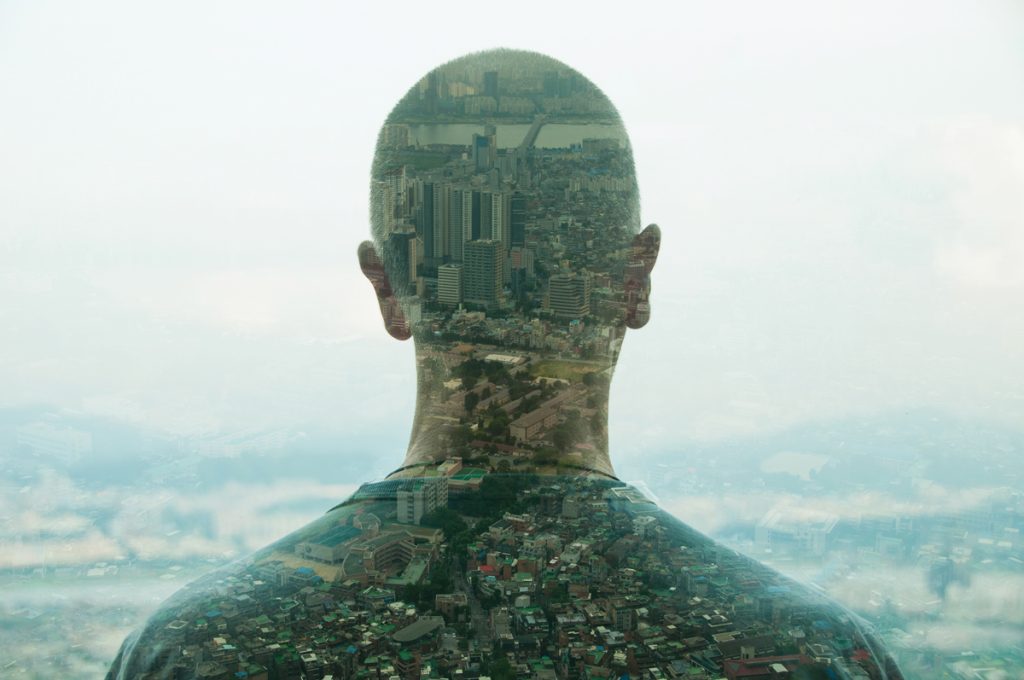Life can only be understood backwards; but it must be lived forwards.
–Soren Kierkegaard
The ancient Greeks, who put the power of Fate above that of Zeus himself, foresaw our own unpredestinate perspective in their metaphor for how we move toward the future. We do not, they believed, move forward into the future, as if crossing through a vast field laid out before us. We cannot move forward into the future since we cannot know what the next moment will be until after it has occurred. The only way to move into the future is backward, as if sitting in the back of a moving boat, looking out over the wake, seeing the next moment only after we have passed through it. Even a so-called act of precognition, a purported glimpse of a future event, much believed in by the Greeks, can be confirmed as such only after the event has passed. You can believe that such an image will occur, but it is a delusion to believe that it must occur, that it is inevitable.
Walking backward toward the future, with our eyes facing in the opposite direction from which we are moving, we can stare far into what has already passed, lining up recent past events with distant past events for the greater clarification of both; we just can’t turn around. All events, no matter how preimagined, are unforeseen. Likewise, all expectations, all plans, are merely conceptions in the present. We cannot move toward them as if all that stood between us and their realization were empty space.
Far from being an outmoded curiosity of the ancient world, walking backward, as the British philosopher Shadworth Hodgson saw, is not a way, but the only way, the “compelled” way that we can be said to move in time, insofar as it is the more accurate analogy for how our consciousness unfolds: a “blind and backward course” where each step is not seen as it is taken “but only immediately after it has been taken.”
The metaphor of moving backward toward the future does not, by itself, deny that we can have an influence over future events. It is not an abstract denial of cause and effect like that set forth by David Hume. Hume’s thesis, one of the most unsettling in Western philosophy, is that one event following another never proves that the second event was caused by the first event. Even if the same sequence is observed over and over again, such as the event of water coming to a boil when it is heated at 212 degrees Fahrenheit, there is no necessary connection, Hume argued, between the two events. Custom, overwhelmingly witnessed custom, as-yet-to-be-seen-as-otherwise custom, is all you’ve got. But custom is not causality. The fact that water has always boiled whenever it has been heated to 212 degrees is no absolute guarantee that it will boil the next time it is heated. As William James expressed this undermining of a foundation of commonsense reality: “The word ‘cause’ is . . . an altar to an unknown god; an empty pedestal still marking the place of a hoped-for statue.”
The metaphor of moving backward toward the future encompasses Hume’s radical skepticism, but its emphasis is existential. It is less concerned with what we know than with how we live. By removing the boundaries of fixed expectations it doesn’t restrict knowledge so much as widen possibility. It does not say (even though, in its strictest interpretation, it agrees) that just because water has always boiled when you have heated it on your stove, there is no necessary connection between the two events; it says, rather, that just because you heat water on your stove there is no certainty that the gas will not shut off before it reaches the boiling point, or the cat will not knock over the tea kettle, or any number of other intervening factors, including (at the outer edge of what is now believed possible) that water no longer boils when heated.
♦
From The Illusion of Will, Self, and Time: William James’s Reluctant Guide to Enlightenment, SUNY Press, 2015. Reprinted with permission of the publisher.
Thank you for subscribing to Tricycle! As a nonprofit, we depend on readers like you to keep Buddhist teachings and practices widely available.
